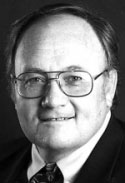Guest Editorial
BY RD SKIDMORE, PROF. | JANUARY 30, 2013
Enslave America … Disarm the people!
 Watching the gun debate proliferate across the nation, functionaries and politicians weep from podiums erected on the graves of children asserting that law abiding citizens be punished along with lawbreakers. Is this not a tawdry abuse of their office?
Watching the gun debate proliferate across the nation, functionaries and politicians weep from podiums erected on the graves of children asserting that law abiding citizens be punished along with lawbreakers. Is this not a tawdry abuse of their office?
The Second Amendment does not grant a new right for the citizens, rather it recognizes and provides in writing ‘a new security’1, as Justice Wilson stated, to the existing rights God had already conferred on His creation and confirmed in legal commentaries that undergird American law.2
Blackstone’s Commentaries on the Law, a highly influential legal commentary at the time of Second Amendments framing, was the standard for American attorneys and judges. Concerning the right of citizens to own and use arms, Blackstone declared: “The … right of the [citizens] that I shall at present mention, is that of having arms for their defense … [This is] the natural right of resistance and self-preservation when the sanctions of society and laws are found insufficient to restrain the violence of oppression … [T]o vindicate these rights when actually violated or attacked, the [citizens] are entitled, in the first place, to the regular administration and free course of justice in the courts of law; next, to the right of petitioning the [government] for redress of grievances; and lastly, to the right of having and using arms for self-preservation and defense.” 3
Justice Joseph Story, historically recognized as one of the “Fathers of American Jurisprudence”, having authored perhaps the most authoritative legal commentary ever written on the U.S. Constitution declared: “ … The right of the citizens to keep and bear arms has justly been considered as the [catalyst] of the liberties of a republic since it offers a strong moral check against the usurpation and arbitrary power of rulers; and will generally, even if these are successful in the first instance, enable the people to resist and triumph over them … There is certainly no small danger that indifference may lead to disgust, and disgust to contempt, and thus gradually undermine all the protection intended by this clause of our nations’ Bill of Rights.” 4
Our Founding Fathers under whose watchful eye both the government and the Second Amendment were created confirms every citizen the right to be armed. Consider just these few:
George Washington, U.S. President, Signer of the Constitution: “A free people ought … to be armed.” 5
James Madison, U.S. President, Signer of the Constitution, a framer of the Second Amendment in the first Congress: “[T]he advantage of being armed [is an advantage which] the Americans possess over people of almost every other nation … [I]n the several kingdoms of Europe … the governments are afraid to trust the people with arms.” 6
George Mason, Delegate to the Constitutional Convention, ‘Father of the Bill of Rights’: “ … when the resolution of enslaving America was formed in Great-Britain, the British parliament was advised … to disarm the people. That it was the best and most effectual way to enslave them. But that they should not do it openly; but to weaken them and let them sink gradually.” 7
Do these strongly held views ring prophetic?
American citizen’s individual right to ‘keep and bear arms’ was also incorporated as a part of the public defense. Passing the Militia Act of 1792, Congress defined the “militia of the United States” NOT as any organized military body; rather it included almost every adult male in the United States. Under the act, each adult was required – by law – to possess a firearm and a minimum supply of ammunition and military equipment 8; the militia law continues in force today, in fact the current law still states, “The militia of the United States consist of all able-bodied males at least 17 [and] … under 45 years of age … ” 9
Our federal Constitution was not formed unconstrained from the ratifying States; they created a Republic. The common views held by the States significantly impacted the Second Amendments language. It is unreasonable to argue that the Second Amendment established a new right to self-protection contrary to that which existed throughout the nation. The States unconditionally resolved the debate with ‘shall not be infringed.’
References
1. James Wilson, The Works of the Honorable James Wilson, Bird Wilson, editor (Philadelphia: Bronson and Chauncey, 1804), Vol. I, p. 14, from “Lectures on Law Delivered in the College of Philadelphia; Introductory Lecture: Of the Study of the Law in the United States.”
2. Wilson, Works, Vol. I, p. 14.
3. William Blackstone, Commentaries on the Law (Philadelphia: Robert Bell, 1771), Vol. I, pp. 143-144
4. Joseph Story, Commentaries on the Constitution of the United States, (Boston: Hilliard, Gray, and Company, 1833), Vol. III, pp. 746-747, §1889 and §1890.
5. George Washington, The Writings of George Washington, Jared Sparks, editor (Boston: Ferdinand Andrews, 1838), Vol. XII, p. 8, from his First Annual Address to Congress on January 8, 1790.
6. Alexander Hamilton, John Jay, and James Madison, The Federalist on the New Constitution (Philadelphia: Benjamin Warner, 1818), p. 259, Federalist No. 46 by James Madison.
7. Debates … of the Convention of Virginia, p. 270, George Mason on June 14, 1788; see also Elliot’s Debates, Vol. III, p. 380.
8. An Abridgment of The Laws of the United States, William Graydon, editor (Harrisburg: John Wyeth, 1803), p. 293, An Act of May 8, 1792.
9. United States Code, title 10, § 311(a). http://www.law.cornell.edu/uscode/text/10/311



